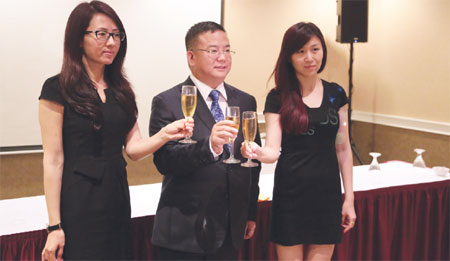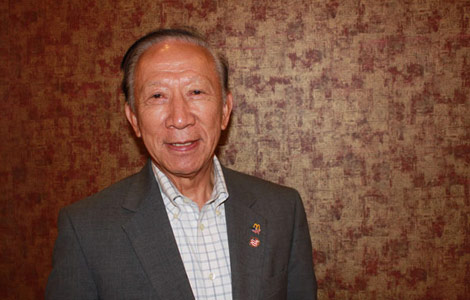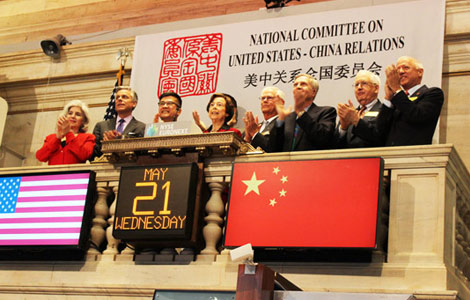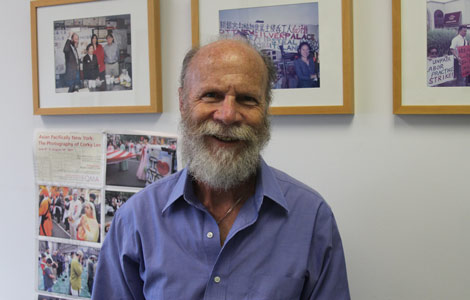A tour of Confucius Institutes in the Americas
Updated: 2014-05-30 12:29
By Cindy Liu in Los Angeles, May Zhou in Nashville, Tennessee, Zhang Fan in Santiago, Chile, and Rio de Janeiro, Brazil, Cai Chunying in Washington, and Liu Chang in Chicago (China Daily USA)
|
|||||||||
Rio de Janeiro, Brazil
Brazil has seven Confucius Institutes and two Confucius Classrooms, the most in Latin America.
"Cultural communication between the two languages has a very long history. China is becoming one of the most important countries in the world, especially for Brazil. I see a bright future for a Confucius Institute in Brazil," said Father Francisco Ivern Simo, vicepresident of the Ponti# cal Catholic University of Rio de Janeiro (PUC-Rio).
The Confucius Institute at PUC-Rio, established in 2011, is one of the largest Confucius Institutes in Brazil, offering 13 credit-based classes a semester to university students in language and culture. It also has part-time language classes with more than 100 local Rio residents enrolled.
"The classes attract students with a variety of social backgrounds, from Congressmen to bus drivers," said Qiao Jianzhen, the institute's director.
The institute has four Chinese teachers, dispatched from Hanban and two local teachers chosen by PUC-Rio, including Tomaz M. Fares, who received a scholarship from Hanban and spent one year studying at Nanjing University in China before returning to teach.
"I want to help more Brazilians to understand more about China," said Fares, who is applying to pursue his graduate studies in international relations at Peking University in Beijing. "I want to become a better teacher of Chinese when I come back," he said.
Washington
The US capital region is where the first Confucius Institute in the US launched. The Confucius Institute at the University of Maryland (UMD), one of the # rst three CIs in the world, has a lot to be proud of.
"I think we paved the road. People do look to us to see what we are doing," said Donna Wiseman, dean of UMD's College of Education. "We feel very strongly that we need to be a good role model."
Wiseman is particularly proud of the institute's ability to prepare Chinese-language teachers at public schools, mainly at the elementary and secondary levels.
With funds from Hanban four years ago, Wiseman was able to build a new academic unit within her own College, called the Center for Chinese Teacher Certi# cation and Development, which offers master's degrees and certificates to students who aspire to become Chinese-language teachers.
The institute also houses the largest HSK testing center in the US which provides standardized testing for pro# ciency in Chinese. The Institute's data showed that about 940 people from nearby states took the test in 2013 and about 600 people have attended this year so far.
According to Hanban, last year only, 370,000 people worldwide attended the test in more than 800 test centers, one-fifth of the total number of participants since the test launched in 1990.
"The growth of Hanban in 10 years is dramatic. I do not know of any other government programs of any other countries that's been so successful in 10 years. I think Hanban and Confucius Institute have done more to improve the visibility and positive image of China than almost anything else. It is huge," said Wallce Loh, president of UMD.
And for Steven Knapp, president of George Washington University who also is a member of the Council of Confucius Institute Headquarters, a combined governing body and advisory board for Confucius Institutes worldwide, CI's success contributes to the well-being of a bigger cause.
"The relationship between our two nations is the most important international relationship for determining the future of the world. To have culture understanding and exchange and people-to-people contact is very critical to the future of the world and to the many challenges that we have to address," said Knapp whose university launched a CI last May.
Most Viewed
Editor's Picks
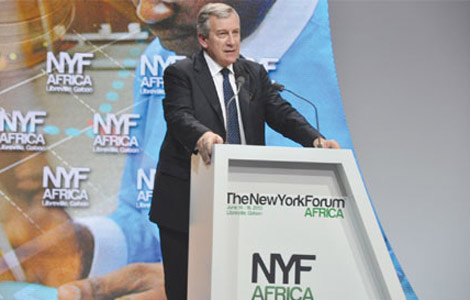
|

|

|

|

|

|
Today's Top News
H1-B visa spouses may soon get to work in US
Obama's speech disappoints
China Inst. marks 88th with gala
Singers try out for China's American Idol
Xi urges more jobs in Xinjiang
China to lower market access to army equipment
Residents collect anti-terror info
Russian troops leave Ukraine border
US Weekly

|

|
